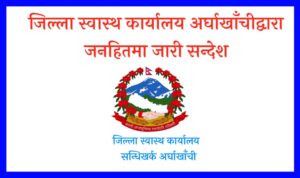 U.S. President Barack Obama and Republican challenger Mitt Romney battled over economic issues on Wednesday in a presidential debate that could prove to be pivotal in helping voters decide which candidate to support in the November 6 election.
U.S. President Barack Obama and Republican challenger Mitt Romney battled over economic issues on Wednesday in a presidential debate that could prove to be pivotal in helping voters decide which candidate to support in the November 6 election.
Romney needed a victory in the 90-minute encounter to help put his campaign back on a positive footing after a rocky few weeks.
Obama, holding a slight edge in national polls and leading Romney in some swing states where the election will be decided, was looking for a performance that would at least avoid harming his position as the apparent front-runner.
The two candidates plunged into economic issues that were the central theme of the University of Denver debate, with Obama arguing his plans would ultimately lead to strong job growth and Romney charging Obama’s policies had failed to turn around the economy and make a significant dent in 8.1 percent unemployment.
“Governor Romney has a perspective that says if we cut taxes skewed towards the wealthy and roll back regulations, that we’ll be better off. I’ve got a different view,” Obama said.
Romney laid out a five-point economic plan and accused the Democrat of relying too heavily on big government.
“The president has a view very similar to the one he had when he ran for office four years ago, that spending more, taxing more, regulating more, if you will, trickle-down government would work. That’s not the right answer for America,” Romney said.
The debate, moderated by PBS anchor Jim Lehrer, was the best opportunity to date to reach large numbers of voters directly, with an estimated television audience of 60 million possible.
Both men have been under pressure to provide more specific details on how to get America’s economy surging again after a prolonged recovery from recession.
With the U.S. jobless rate above 8 percent for 43 straight months, huge federal budget deficits, and increasingly expensive entitlement programs, the economy is voters’ top concern.
The Obama camp notes that the president inherited a tough economy from his Republican predecessor, George W. Bush, and that things have improved, if slowly. His first term has been marked by fierce partisan battles that have frozen Washington into political gridlock.
Romney, a former governor of Massachusetts, says his experience as a businessman will enable him to turn the economy around and create 12 million jobs in four years.
A Reuters/Ipsos daily tracking poll on Wednesday showed Obama up among likely voters by 47 percent to 41 percent. A new NPR poll had Obama ahead 51 percent to 44 percent among likely voters.
A few other surveys showed a tightening race, including an NBC/Wall Street Journal poll released on Tuesday with Obama up by just 3 points among likely voters, at 49 percent to 46 percent.
Source:Thetimesofearth
 U.S. President Barack Obama and Republican challenger Mitt Romney battled over economic issues on Wednesday in a presidential debate that could prove to be pivotal in helping voters decide which candidate to support in the November 6 election.
U.S. President Barack Obama and Republican challenger Mitt Romney battled over economic issues on Wednesday in a presidential debate that could prove to be pivotal in helping voters decide which candidate to support in the November 6 election.



